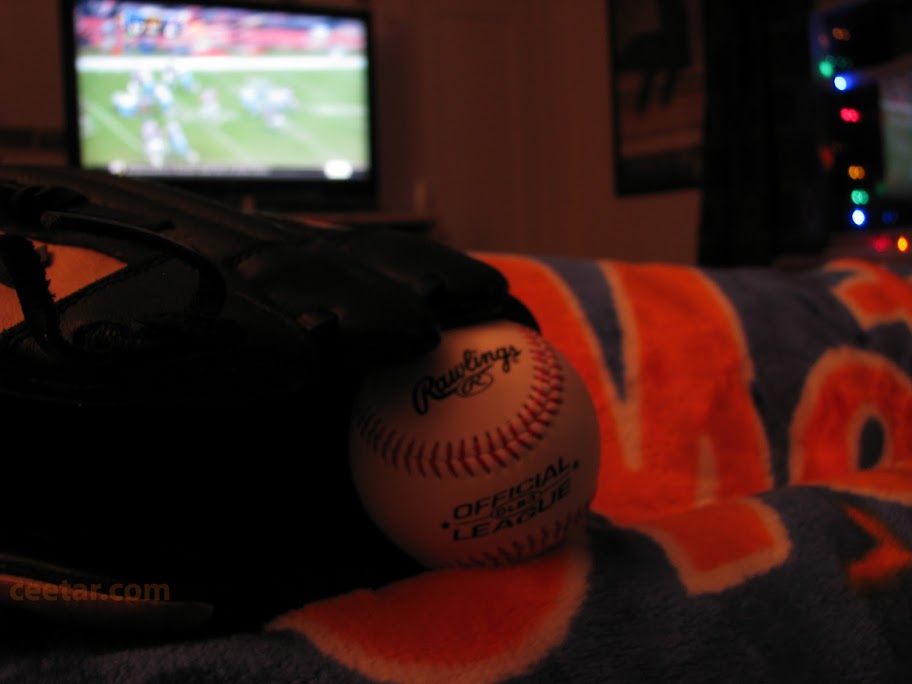Statistics
The results don’t matter. This goes double for guys with guaranteed spots and pitchers. Pitchers tend to experiment with different things like pitch selection, grip, or even a new pitch. They may stand on a different part of the rubber or pitch from the stretch with no one on just for practice. Being that the games don’t matter, they’re able to tinker without affecting the standings. An example of this is last spring Mike Pelfrey said “I threw all split-finger fastballs one inning.” This is not something that he would do in a game situation.
The numbers for the guys competing for spots may matter a bit more, but the entire experience is an evaluation and a showcase. It’s more than who strikes out the most batters or who hits the most home runs. It could be about any number of things and often managers and general managers may go on feel. They could be looking at how hard a guy hits the ball, even for outs, or looking to see if he’s laying off bad pitches that were causing too many strikeouts in years past. Spring Training is almost always a small sample size subject to a lot of variation. AAA players, pitchers working on things, defenders playing a position for the first time, pitchers experimenting with new grips and new deliveries and pitches all create a game that’s not quite the same as the regular season. Often decisions need to be made on less measurable things like work ethic, bat speed, or getting good reads on fly balls.
Reports On Physical Condition
Inevitably someone in camp is in the best shape of their lives, while others packed on some pounds. This information is beyond useless beyond making fun of the fat guy on a rival team’s roster. It’s still six weeks to Opening Day and everyone is well into a regimented workout program by then that makes what they ate in the offseason while they were essentially on vacation worthless. No one criticizes you when you have a second helping of pulled pork and another cocktail when you’re on vacation, so lay off the players.
Game Scores and Records
For every example of a team that dominated Spring Training that did well in the regular season there is a team that did horrible in Spring Training and still did well in the regular season. None of it matters. Guys are just putting in their work. It’s a rotating cast of characters parading through the game and half of them won’t even make the team. Sometimes they tie. Sometimes they play a 10th inning for fun and sometimes the manager pinch hits an unseasoned AA rookie for his superstar in the bottom of the 9th just because he wants to see if he can hit the lefty on the mound. The same goes for lineups early on. Sometimes stars bat higher up in the order so they can get their two or three at-bats in earlier in the game and get off the field. You may bat a pitcher third because you want him to practice a bunt or move a player to lead off to challenge him to take more pitches.
Spring Training is a lot of fun, but it’s still an exhibition for the real thing. There are a lot of interesting things to watch, but there are plenty of things that aren’t worth worrying about either.



 Some sports writers and bloggers can’t help but recycle the same stories over and over again, merely inserting different information to reach the same conclusion. A free agent someone deems worthy is passed over, therefore the Mets will not spend money. Someone on the team tweaks a muscle, and the medical staff is inept. The players have a bad game and suddenly they’re unfocused and uncaring. So it should come as no surprise when someone out there twists the Jason Isringhausen signing to meet a common plot point: The Mets are desperate to cut payroll for 2012 and will do anything to get out of K-Rod’s contract. It’s possible that by the time I publish this it’ll already have been written. It’ll probably be something like this:
Some sports writers and bloggers can’t help but recycle the same stories over and over again, merely inserting different information to reach the same conclusion. A free agent someone deems worthy is passed over, therefore the Mets will not spend money. Someone on the team tweaks a muscle, and the medical staff is inept. The players have a bad game and suddenly they’re unfocused and uncaring. So it should come as no surprise when someone out there twists the Jason Isringhausen signing to meet a common plot point: The Mets are desperate to cut payroll for 2012 and will do anything to get out of K-Rod’s contract. It’s possible that by the time I publish this it’ll already have been written. It’ll probably be something like this:






 I know all these stories have been talked about and re-talked about since it’s the off-season and there is very little going on, but bare with me as I talk about this one some more.
I know all these stories have been talked about and re-talked about since it’s the off-season and there is very little going on, but bare with me as I talk about this one some more.